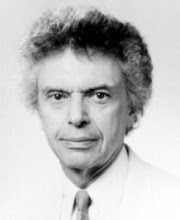Reflections About Classical Adlerian Depth Psychotherapy: Theory, Practice, and Life
A vigorously optimistic and inspiring approach to prevention and treatment, Classical Adlerian Depth Psychotherapy balances the equally important needs for individual, optimal development and social contribution. With a solid foundation in the original teachings and therapeutic style of Alfred Adler, it integrates the self-actualization research of Abraham Maslow. For more information, visit our web site at http//www.Adlerian.us
About Me

- Name: Henry T. Stein, Ph.D.
- Location: Bellingham, Washington, United States
Classical Adlerian psychotherapist and training analyst. Director of the Alfred Adler Institute of Northwestern Washington, offering distance training in Classical Adlerian psychotherapy. Tel: (360) 647-5670. Email: htstein@att.net
Monday, November 28, 2011
Paul Bloom, in The New York Review of Books, June 11. 2011, reviewed "The Science of Evil: On Empahty and the Origina of Cruelty" by Simon Baron-Cohen. Baron-Cohen defines evil as nothing more than "empathy erosion." Psychopaths, narcissists, borderlines, seducers, manipulators, and con ment cause significant suffereng to those around them, due to a lck of compassion, and a willingness to destroy lives out of self-interest, malice, or boredom. The author even suggests a new psychiatric classification to be called "empathy disorders," describing people who ignore the suffwering of others in the pursuit of their own goals. In light of this argument, the recent segment on "60 Minutes," documenting the plight of American millions of chldren living in poverty, throws a penetrating light on Newt Ginrich's comment about paying poor children to clean schools so that they would learn a "work ethic." Is Washington, as well as many corporations, banks, and stock trading companies a magnet for people with "empathy disorders?"
Sunday, November 27, 2011
Another View of the Roots of Freud's Theory
In the October 13th 2011 issue of "The New York Review of Books," Frederick C. Crews wrote a controversion review of books by Gerald Imber and Howard Markel, titled "Physician heal Thyself," wherein he speculates on the origns of Freud's theories. According to Alfred Adler, a contemporary of Sigmund Freud, earliest childhood recollections usually reveal the dynamic roots of the personality. Two of Freud's early collections may provide additional insight into his life and work, alongside Frederick Crew's cocaine hypothesis. Memory 1: At the age of 3 Freud still wet his bed. Reproached by his father, Freud said, "Don't worry papa, I will buy you a beautiful new red bed." Memory 2: At age 7 or 8, Freud recalls urinating deliberately in his parents' bedroom, and being reprimanded by his father, who said, "That boy will never amount to anything." Preoccupation with a urinary-sexual organ, aggression, compensatory ambition, and a father-son conflict could have transformed remembered early childhood experiences into an adult psychological theory.

